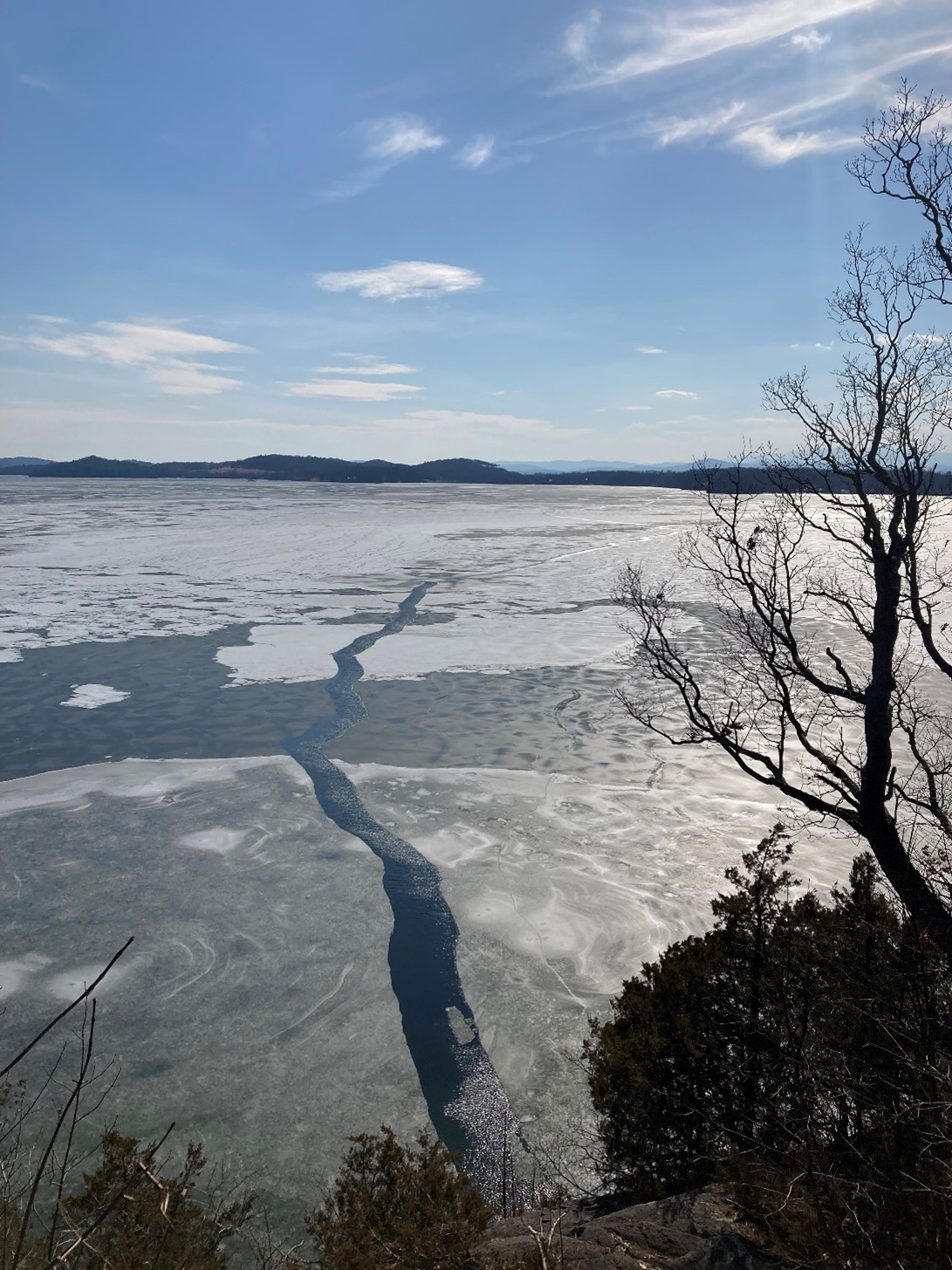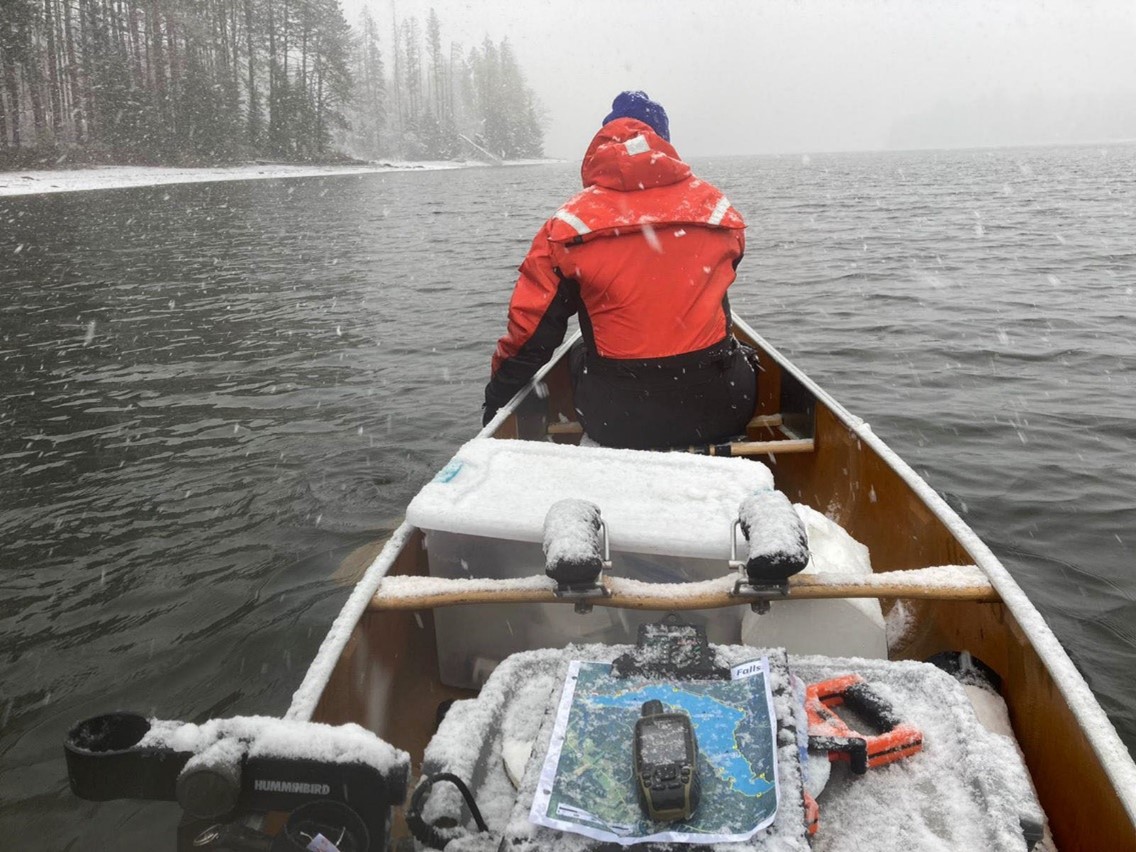PRESS RELEASE
For Immediate Release – March 17, 2023
Contact:
Mark Mitchell, Limnologist
Department of Environmental Conservation
802-490-6126, Mark.Mitchell@partner.vermont.gov
Vermont DEC Seeks Lake Ice Observations from the Public
Montpelier, VT – As Vermonters patiently wait for spring temperatures to arrive, the Department of Environmental Conservation (DEC) invites the public to report when Vermont’s lakes and ponds lose their ice cover. Also known as the “ice-out date,” this date marks when lakes or ponds become ice-free from shore to shore. Tracking ice-out dates helps DEC scientists decide when to begin seasonal water quality sampling efforts.
“By reporting ice-out dates, Vermonters can help us better understand how climate change impacts our lakes and ponds,” said DEC Commissioner John Beling. “Using long-term records of lake ice, our scientists can learn about and track statewide and regional climate trends.”
When ice covers lakes, the water below separates into layers based on temperature and density. When the surface ice fully melts in the spring, the heavy cold water sinks and the water column fully mixes. Water samples collected at this time of mixing show the baseline amount of phosphorus a lake will have available to fuel algae and aquatic plant growth during the spring and summer.
“Since 1977, we have collected information on the spring water quality of lakes larger than 10 acres in size,” says Mark Mitchell, a limnologist with DEC and Lake Champlain Sea Grant. “Over those 45 years, we have seen trends of earlier lake ice-out dates across Vermont and New England, which can be a sign of climate change.”
Members of the public can report their lake ice observations using the online reporting form. Many lake communities around the state also hold ice-out contests, usually in the form of a raffle where the winners can receive prizes or cash.
Some of the more famous and long-running ice-out contests are on Joe’s Pond (Danville), Lake Memphremagog, and Lake Iroquois (Hinesburg). These contests are an engaging way for lake associations and communities to encourage folks to observe lakes and ponds throughout the year.
To view spring water quality information, visit the Vermont Lake Score Card. For more information visit the DEC Lakes and Ponds Program online.
###
The Department of Environmental Conservation is responsible for protecting Vermont's natural resources and safeguarding human health for the benefit of this and future generations. Visit dec.vermont.gov and follow the Department of Environmental Conservation on Facebook and Instagram.

Lake Champlain ice cover seen from Red Rocks Park on May 17, 2022; photo by Mark Mitchell.

DEC scientist collecting water samples on Molly’s Falls Reservoir in Marshfield shortly after lake ice-out in early spring.
